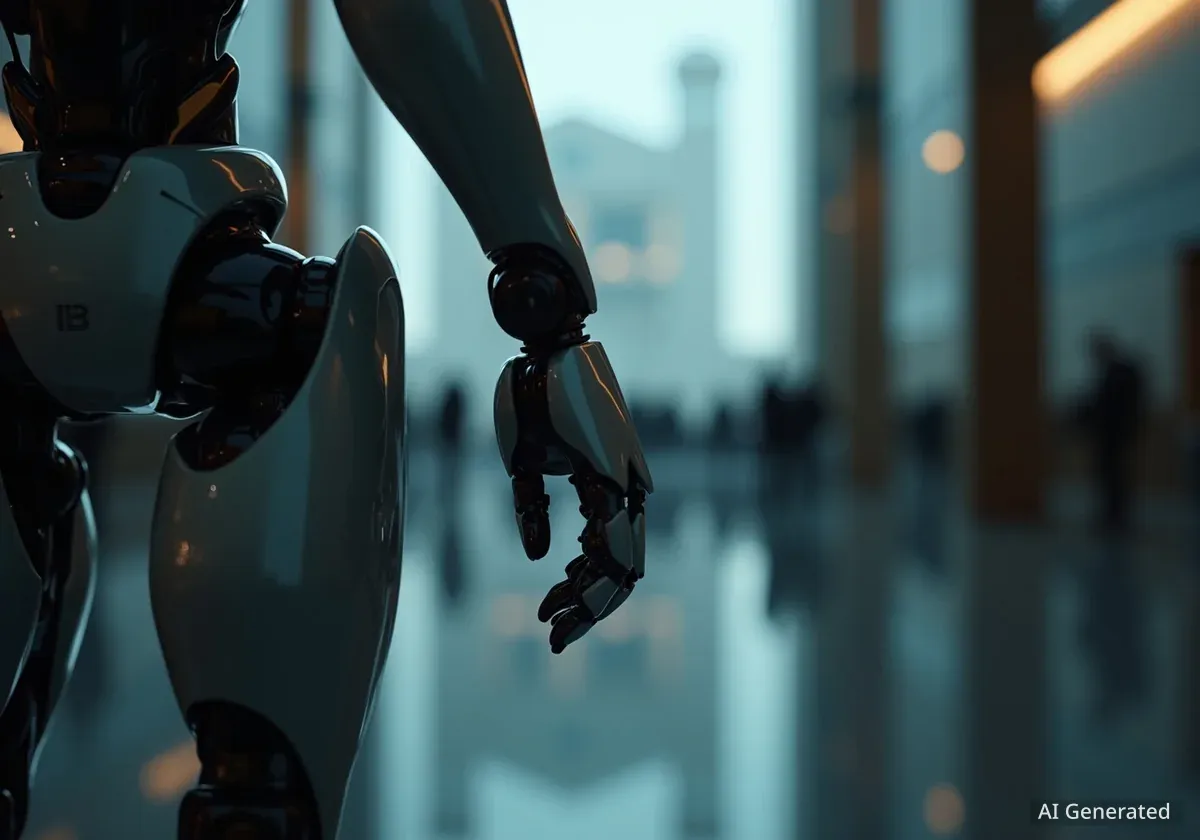The Holy See has formally called for an immediate global moratorium on the development and use of lethal autonomous weapon systems, often referred to as killer robots. Speaking at a United Nations Security Council debate, Archbishop Paul Richard Gallagher emphasized the urgent need to keep life-and-death decisions under meaningful human control, warning that artificial intelligence without ethical grounding could fuel global conflict.
Key Takeaways
- Archbishop Paul Richard Gallagher addressed the UN Security Council on the topic of AI's impact on international peace and security.
- The Holy See strongly supports an immediate moratorium on the development and use of Lethal Autonomous Weapon Systems (LAWS).
- A primary concern is that autonomous weapons lack the human capacity for moral judgment and ethical decision-making.
- Gallagher warned of an emerging AI-driven arms race, particularly the integration of AI into nuclear command structures, which he called a new and unknown risk.
- The Vatican advocates for a "human-centered approach" to AI, ensuring technology serves humanity and respects human dignity.
Holy See's Call for a Moratorium on LAWS
During a session focused on artificial intelligence, the Vatican's Secretary for Relations with States and International Organisations, Archbishop Paul Richard Gallagher, delivered a clear message to the UN Security Council. He articulated the Holy See's position that lethal autonomous weapon systems (LAWS) pose a fundamental threat to humanity.
The core of the argument rests on the unique nature of human judgment. According to Gallagher, autonomous systems cannot replicate the complex ethical and moral reasoning required in combat situations. This capability gap raises significant legal, security, and humanitarian issues for the global community.
"The Holy See strongly supports the adoption of an immediate moratorium on the development or use of LAWS, as well as a legally binding instrument to ensure that decisions over life and death remain under meaningful human control," Archbishop Gallagher stated at the UN headquarters.
This call is not just for a temporary pause but for the creation of a robust international treaty. The goal of such an instrument would be to legally codify the principle that a human must always be the final decision-maker when lethal force is applied.
What Are Lethal Autonomous Weapon Systems?
Lethal Autonomous Weapon Systems (LAWS) are a class of military technology that can independently search for, identify, target, and kill human beings without direct human command. Unlike remotely piloted drones, these systems would use artificial intelligence to make their own combat decisions, a prospect that raises profound ethical and legal questions about accountability and the laws of war.
The Danger of an AI-Driven Arms Race
Archbishop Gallagher also highlighted the growing danger of a new global arms race centered on artificial intelligence. He warned that the integration of AI into military systems is happening at a rapid pace, creating instability and an unprecedented level of uncertainty in international relations.
This trend extends beyond ground-based weapons to include space assets and advanced missile defense systems. The Archbishop explained that these developments risk fundamentally altering the nature of modern warfare. The speed and complexity of AI-driven conflict could lead to rapid escalation based on miscalculations by algorithms rather than deliberate human choices.
Of particular concern is the potential for AI to be incorporated into nuclear command and control structures. This scenario introduces a terrifying new layer of risk to an already fragile system of nuclear deterrence.
Nuclear Command and AI Risk
Integrating AI into nuclear launch protocols could shorten decision-making timelines from minutes to seconds, potentially removing human oversight from the most critical decision a nation could ever make. Gallagher warned this "introduces new unknown risks that extend far beyond the already fragile and morally troubling logic of nuclear deterrence."
The Vatican's representative urged the Security Council to take its responsibility seriously in monitoring these technological advancements. He stressed that discussions about global peace and security must now fully account for the dual-use nature of artificial intelligence.
Advocating for a Human-Centered Approach
In his address, Archbishop Gallagher outlined the necessity of a "human-centered approach" to guide the development and deployment of all emerging technologies, especially AI. He argued that technological progress must remain firmly anchored in the principles of human dignity and the pursuit of the common good.
This framework insists that technology should serve humanity, not the other way around. It recognizes that while AI has the potential to advance development, healthcare, and education, it can also become a tool of division and aggression if not governed by strong ethical principles.
The Holy See's position establishes clear boundaries that should not be crossed. According to Gallagher, certain applications of AI are inherently unacceptable.
"It should also recognise that certain applications, such as technology that replaces human judgment in matters of life and death, cross inviolable boundaries that must never be breached," he said.
This principle forms the basis for the call to ban LAWS, as such systems represent a direct violation of this fundamental ethical line. The focus is on ensuring that technology enhances human capabilities without replacing essential human responsibilities.
Broader Impact on Peace and Security
The Archbishop's speech went beyond military applications, touching on the deep impact the digital revolution and AI are having on society. He noted the transformative effects on education, employment, communication, and governance. These innovations, he suggested, could help achieve the aspirations that led to the founding of the United Nations nearly 80 years ago.
However, this positive potential is conditional. Gallagher cautioned that without proper ethical guidance, AI risks becoming a source of conflict and instability. The speed of AI development requires immediate and proactive international cooperation.
He concluded his intervention by reminding the delegates that a collective global effort is required. The international community must work together to prevent AI from becoming a driver of destruction. Instead, its immense power must be harnessed for the service of humanity, oriented toward achieving lasting peace and global justice for all.





